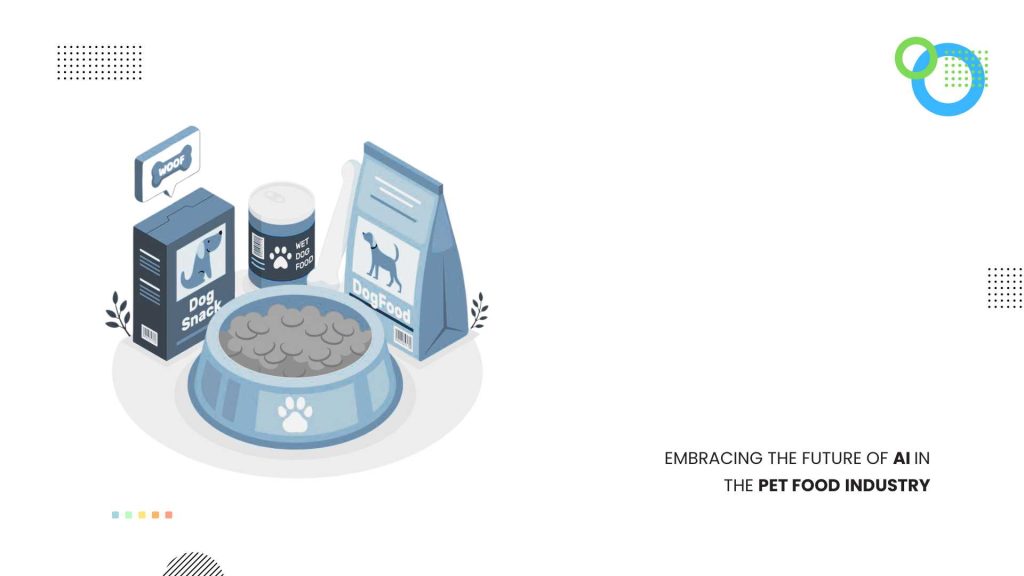The pet food industry, valued at a staggering £3.1 billion, is on the cusp of a technological revolution. AI and automation tools are set to transform how pet food is produced, packaged, and delivered, offering unprecedented improvements in service quality, food security, and operational efficiency. Let’s explore how AI can reshape this vibrant industry and address its inherent challenges.
Impact of AI on the Pet Food Industry
Improved Service Quality
AI-driven analytics provide deep insights into consumer preferences and buying behaviors. By examining huge data, businesses can alter their products to meet custom demands, ensuring pets get the nutrition they need while satisfying pet owners’ preferences. Customization at this level enhances customer satisfaction and loyalty.
Increased Food Security
AI plays a critical role in assuring food security. Advanced algorithms can predict and detect contamination or spoilage in pet food products by analyzing environmental factors, supply chain data, and production conditions. This proactive approach minimizes the risk of distributing unsafe products and protecting pets’ health.
Smart Sensors for Production Failures
Implementing smart sensors within production lines enables real-time monitoring and rapid detection of anomalies. These sensors can identify issues such as equipment malfunctions or deviations in ingredient ratios, allowing for immediate corrective actions. This not only reduces downtime but also ensures consistent product quality.
Automated Packaging
Automation in packaging streamlines the entire process, from filling to sealing and labeling. AI systems can precisely manage these tasks, significantly reducing human error and increasing throughput. Automated packaging also allows for more sustainable practices by optimizing material usage and reducing waste.
Quality Inspection
Quality control is paramount in the pet food industry. AI-powered vision systems can inspect products for defects, ensuring each item meets stringent quality standards. These systems can detect inconsistencies that human inspectors might miss, leading to higher product quality and fewer recalls.
Pet Food Industry Challenges
Despite its growth, the pet food industry faces several challenges that AI and automation can help mitigate.
Product Safety & Regulation Compliance
Ensuring product safety and adhering to regulatory standards are critical. AI can streamline compliance by continuously monitoring production processes and maintaining detailed records, ensuring all products meet the necessary guidelines.
Constant Labor Challenges
Labor shortages and high turnover rates are persistent issues. Automation reduces dependency on manual labor, allowing companies to maintain high production levels with fewer staff. This shift addresses labor shortages, improves efficiency, and reduces operational costs.
Sustainable Packaging
The push for sustainable packaging is stronger than ever. AI can optimize packaging designs to use fewer materials while maintaining product integrity. Automated systems can more effectively manage recyclable materials, contributing to more eco-friendly operations.
Transportation
Efficient transportation is essential for maintaining product freshness and quality. AI can optimize logistics by predicting demand, planning routes, and managing inventory levels. This ensures timely delivery and reduces transportation costs, enhancing the overall supply chain efficiency.
Peroxide Value Challenges
The peroxide value in pet food indicates its freshness and oxidation level. AI can monitor and control the oxidation process during production, ensuring the peroxide values remain within safe limits. This helps maintain the nutritional quality and shelf life of pet food products.
How Acumatica Can Help:
Incorporating AI and automation in the pet food industry promises to unlock new efficiency, safety, and customer satisfaction levels. Addressing key challenges and enhancing various production and logistics aspects, AI ensures that pets receive high-quality, nutritious food while streamlining manufacturers’ operations.
Using advanced solutions like Acumatica ERP, pet food companies can achieve end-to-end supply chain visibility, optimize performance, and deliver greater customer value. As the industry evolves, AI will undoubtedly play a major role in shaping its future, driving innovation, and ensuring sustainable growth.

Vijay comes with a vast experience in ERP and enterprise solutions space with about 20 years of experience in various packaged application like Acumatica, SAP, Orion, Salesforce.com, SugarCRM and, SalesLogix.

